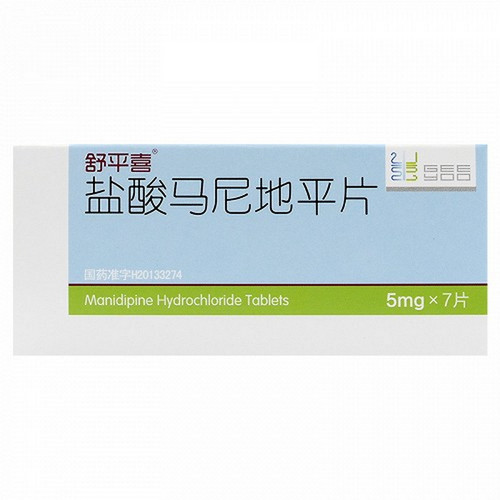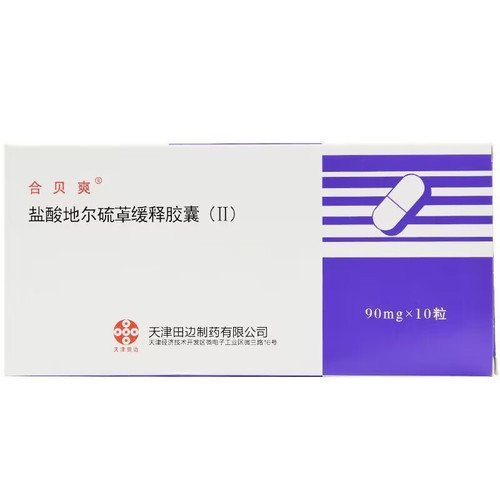Product Overview
[Drug Name]
Generic Name: Imidapril Hydrochloride Tablets
Trade Name: DaShuang Imidapril Hydrochloride Tablets, 5mg x 10 Tablets
Pinyin Code: YanSuanMiDaPuLiPian (DaShuang)
[Main Ingredient]
The main ingredient of this product is imidapril hydrochloride.
[Appearance]
This product is white tablets.
[Indications/Main Functions]
1. Essential hypertension; 2. Secondary hypertension due to renal parenchymal lesions.
[Specification]
5mg x 10 tablets
[Dosage and Administration]
Adults: 5-10mg of imidapril hydrochloride orally once daily. The dosage may be increased or decreased based on age and symptoms. However, for patients with severe hypertension, hypertension associated with renal dysfunction, and renal parenchymal hypertension, it is best to start with 2.5mg.
Adverse Reactions:
Most adverse reactions to this product are mild, primarily including cough (4.5%), pharyngeal discomfort (0.5%), dizziness (0.2%), orthostatic hypotension (0.2%), and rash (0.1%). Occasionally, angioedema of the face, tongue, and throat accompanied by dyspnea, severe thrombocytopenia, worsening renal insufficiency, or elevated liver aminotransferase levels may occur. Angiotensin-converting enzyme inhibitors have been reported to cause various blood cell reductions.
Contraindications:
1. Patients with a history of hypersensitivity to this product.
2. Patients with angioedema caused by other angiotensin-converting enzyme inhibitors.
3. Patients undergoing hemodialysis using a glucose sulfate cellulose absorber.
4. Patients undergoing hemodialysis using a sodium acrylonitrile methyl allyl sulfonate membrane.
Drug Interactions:
1. Concomitant use of this product with potassium-sparing diuretics (spironolactone, triamterene, etc.) or potassium supplements (potassium chloride, etc.) may increase serum potassium concentration.
2. Concomitant use of this product with lithium preparations (lithium carbonate) may cause lithium poisoning.
3. In patients receiving diuretics (such as trichloromethiazide and hydrochlorothiazide), the initial administration of this product may enhance its antihypertensive effect. 4. Concomitant use with nonsteroidal anti-inflammatory drugs (such as aminoflavones and indomethacin) may weaken the antihypertensive effect of this product.
5. Other antihypertensive medications (such as antihypertensives and nitrates) may also enhance the antihypertensive effect of this product.
[Precautions]
1. This product should be used with caution in patients with severe renal impairment, bilateral renal artery stenosis, cerebrovascular disease, and the elderly.
2. Patients with severe hypertension, those undergoing hemodialysis, those taking diuretics (especially in the initial stages of treatment), and those undergoing hyponatremia therapy should start with a low dose.
3. Occasionally, the antihypertensive effect may cause dizziness and staggering. Therefore, caution should be exercised when performing hazardous tasks such as working at heights.
4. This drug should not be used within 24 hours before surgery.
[Pediatric Use]
As an antihypertensive drug, the safety and efficacy of this drug in children are currently unknown.
[Elderly Use]
When using this drug in elderly patients, it is recommended to start with a low dose (e.g., 2.5 mg) and adjust the dose and dosing interval accordingly based on the patient's condition.
[Overdose]
This is unknown.
[Pharmacology and Toxicology]
1. Pharmacology: This drug is an angiotensin-converting enzyme (ACE) inhibitor. After oral administration, it is converted into the active metabolite imidaprilat in the body. This metabolite inhibits ACE activity, preventing the conversion of angiotensin I to angiotensin II, leading to peripheral vasodilation, reduced vascular resistance, and a hypotensive effect.
2. Toxicology (Carcinogenicity, Mutagenicity, and Reproductive Toxicity): Long-term oral administration of this drug (10 mg/kg daily and 30 mg/kg daily) for 18 months and 4 months, respectively, did not reveal any carcinogenic effects in rats and mice. No mutagenic effects were observed in bacterial reverse mutation tests, mouse micronucleus tests, chromosomal aberration tests, or gene mutation tests. Reproductive toxicity studies in rats and rabbits showed no teratogenic or lethal effects.






